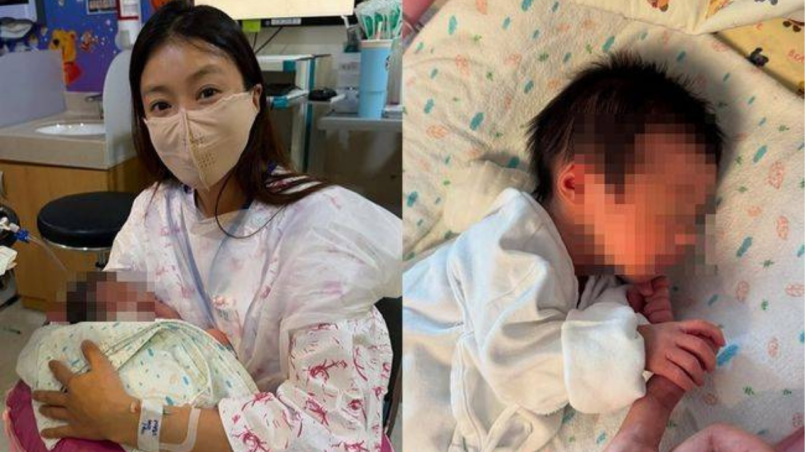Emerging legal interpretations say that actress Lee Si-young is unlikely to face criminal liability for having undergone a frozen embryo transplant without her ex-husband's consent, developments that have intensified national debate over the birth of her second child and associated parental rights.

Controversy further mounted after OSEN pointed out the legal and ethical complications of in vitro fertilization for the actress and the deficiencies of current bioethics regulations in the country.
On the Nov. 17 broadcast of "YTN Radio's program Attorney Wonhwa Lee's Case X-Files," attorney Jeongmin Lee discussed the matter in detail. The attorney said, "It is true that Ms. Lee Si-young transplanted a frozen embryo without her ex-husband's consent, but it does not seem possible to punish her criminally."
He continued, "The Bioethics Act stipulates that the couple's consent must be confirmed 'at the time of embryo creation,' but there is no provision for 're-consent' at the 'transplantation stage. It is highly likely that the document that created the fertilized embryo at the time included the phrase 'transplantation possible,' and this tends to be interpreted as implicit consent."
READ MORE; Actress Lee Si Young Under Fire for Allegedly Using Ex-Husband's Frozen Embryo to Have Second Child
Attorney Lee then continued onto the baby's legal status. He said, "Because the transplant took place after the divorce, the 'presumption of birth during marriage' under civil law does not apply."
Without a formal acknowledgment from the father, the child is initially an "illegitimate child," although this changes with the completion of the recognition.
The attorney noted that the ex-husband had already stated he would "fulfill his responsibilities as a father," which turns on full parental rights and responsibilities, including child support, inheritance, and visitation once legal acknowledgment is finalized.
Questions also have arisen about whether Lee could be held liable for proceeding without renewed consent from her former spouse. He said, "If consent was given at the embryo creation stage, it would be difficult to take issue with the transplant itself. If she had clearly expressed her opposition (withdrawal of consent) to the hospital before the transplant, the possibility of compensation for damages could open up."
He concluded by emphasizing the need for clearer laws, adding after a neutral introduction, "From the perspective of the person who gave birth, the situation where the legal status of the father is not determined immediately after birth can be excessively harsh," and recommended considering a "presumption of paternity" based on the time of embryo creation.
Lee Si-young, 43, announced in July that she was pregnant—several months after getting a divorce—amplifying the public interest because the embryo was made with her ex-husband.
Later this month, Panchoa reported that the actress announced the birth on November 5 via social media, referring to the baby as "a gift from God," while her agency, Ace Factory, confirmed the news but wouldn't disclose more.
Reports reveal that Lee had a few embryos preserved throughout her marriage, which ended in divorce in March of 2025, and thereafter implanted one of them. She acknowledged there was no consent, saying, "My partner did not consent, but I intend to bear the full weight of the decision I made."
The revelation has fueled public debate about ethics and the legality of IVF consent in the country, with opinions divided between support for her choice and condemnation of the act, though neither Lee nor her ex-husband has spoken further on the matter.
READ MORE: Lee Si-young Sparks Outrage in the US? Controversial Video of Her Son Goes Viral












